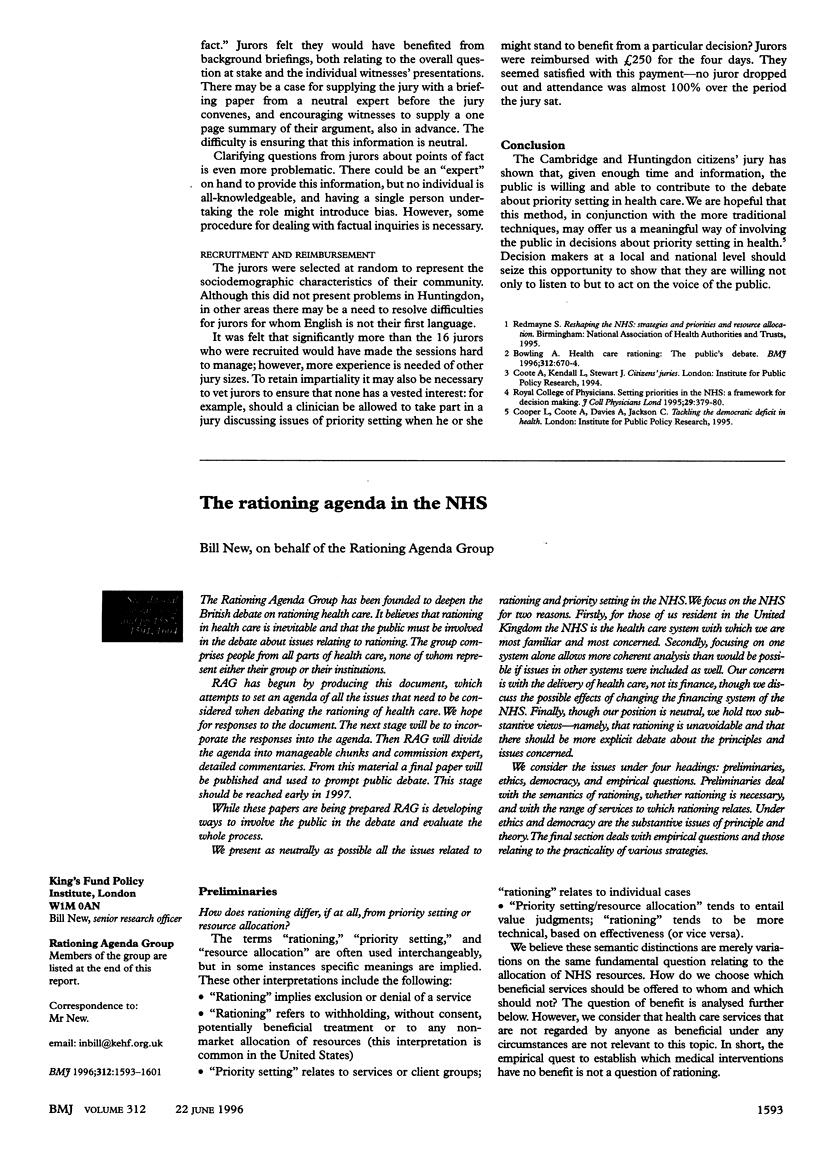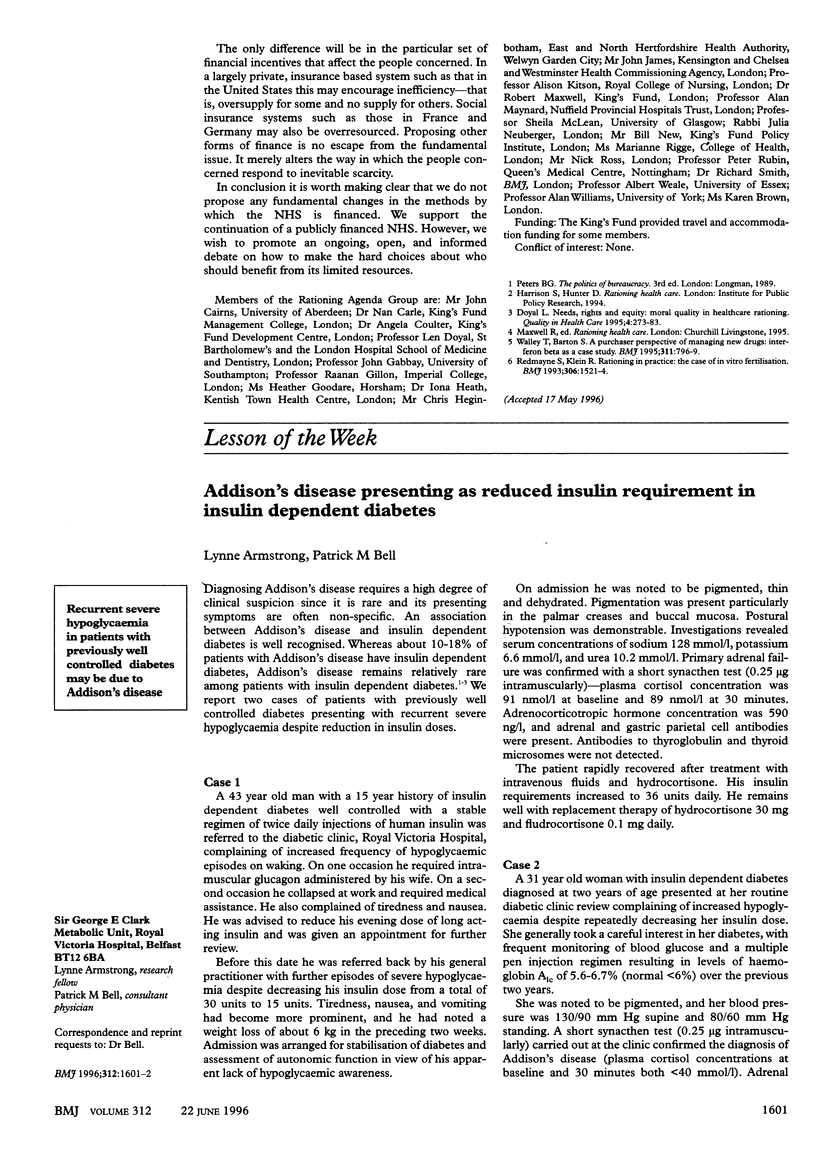Abstract
The Rationing Agenda Group has been founded to deepen the British debate on rationing health care. It believes that rationing in health care is inevitable and that the public must be involved in the debate about issues relating to rationing. The group comprises people from all parts of health care, none of whom represent either their group or their institutions. RAG has begun by producing this document, which attempts to set an agenda of all the issues that need to be considered when debating the rationing of health care. We hope for responses to the document. The next stage will be to incorporate the responses into the agenda. Then RAG will divide the agenda into manageable chunks and commission expert, detailed commentaries. From this material a final paper will be published and used to prompt public debate. This stage should be reached early in 1997. While these papers are being prepared RAG is developing ways to involve the public in the debate and evaluate the whole process. We present as neutrally as possible all the issues related to rationing and priority setting in the NHS. We focus on the NHS for two reasons. Firstly, for those of us resident in the United Kingdom the NHS is the health care system with which we are most familiar and most concerned. Secondly, focusing on one system alone allows more coherent analysis than would be possible if issues in other systems were included as well. Our concern is with the delivery of health care, not its finance, though we discuss the possible effects of changing the financing system of the NHS. Finally, though our position is neutral, we hold two substantive views--namely, that rationing is unavoidable and that there should be more explicit debate about the principles and issues concerned. We consider the issues under four headings: preliminaries, ethics, democracy, and empirical questions. Preliminaries deal with the semantics of rationing, whether rationing is necessary, and with the range of services to which rationing relates. Under ethics and democracy are the substantive issues of principle and theory. The final section deals with empirical questions and those relating to the practicality of various strategies.
Full text
PDF








Selected References
These references are in PubMed. This may not be the complete list of references from this article.
- Doyal L. Needs, rights, and equity: more quality in healthcare rationing. Qual Health Care. 1995 Dec;4(4):273–283. doi: 10.1136/qshc.4.4.273. [DOI] [PMC free article] [PubMed] [Google Scholar]
- Redmayne S., Klein R. Rationing in practice: the case of in vitro fertilisation. BMJ. 1993 Jun 5;306(6891):1521–1524. doi: 10.1136/bmj.306.6891.1521. [DOI] [PMC free article] [PubMed] [Google Scholar]
- Walley T., Barton S. A purchaser perspective of managing new drugs: interferon beta as a case study. BMJ. 1995 Sep 23;311(7008):796–799. doi: 10.1136/bmj.311.7008.796. [DOI] [PMC free article] [PubMed] [Google Scholar]


